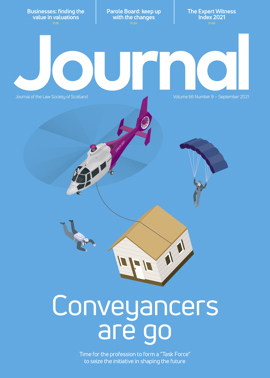Profile: Tatora Mukushi
1. What made you pursue a legal career?
Stephen Bantu Biko, South African anti-apartheid activist, organiser and law student, was murdered in 1977 by security services. Since I was a boy, every aspect of his life and death intrigued me, especially as there are so many contemporary echoes of his philosophy, experience and harsh reality. Seeing the law, as he did, as a device of meaningful empowerment, is what engages me here and keeps me going.
2. Can you tell us about your career path to date?
I initially trained in criminal defence in a small firm in Kings Cross in London, and in conveyancing in a small firm in Crouch End. After that, criminal defence won the toss and I practised for about seven years until I moved to Glasgow. I cross-qualified and practised in asylum and immigration and then in a mental health and incapacity project in a Glasgow law centre. I joined the Scottish Human Rights Commission in 2019. At the beginning of the first coronavirus lockdown, I took paternity leave and then joined Shelter Scotland’s Migrant Destitution Project. This year, I was appointed to the Equality & Human Rights Commission’s Scotland Committee and as convener to the Law Society of Scotland’s Racial Inclusion Group. I have recently joined the Scottish Government Legal Department.
3. Have your perceptions of the Society changed since you joined the Racial Inclusion Group?
I think so. My prior engagement with the Society was based entirely around transferring my qualification to Scotland and all of the bureaucratic anxiety that entails. My work on the Racial Inclusion Group has been far more personal and engaging, allowing me to develop relationships with the people who are the functional machinery of the Society. I appreciate the Society as a modern dynamic organisation which is doing everything it can to engineer beneficial change for its members and for the public. I am looking forward to the publication of the results of the Racial Inclusion Group’s research, which will help to inform the Society’s work to build a more inclusive culture for the Scottish legal profession.
4. What are the main issues that you think the Society has to address at the moment?
The Society runs an excellent Street Law programme, where law students visit secondary schools to bring the law to life for school-age pupils, and it would be great to see a continuation and extension of this important work. Working with the profession to reduce barriers to entry to the profession, particularly those based on class, ethnicity, neurodiversity and disability. In a similar vein, guiding working practices that increase retention of women in the profession.
Alternative routes to qualification could be examined to increase the accessibility of the profession. England & Wales have done some of this to overcome the scarcity of training opportunities.
The Society has done considerable work on remuneration for legal aid solicitors throughout the period dominated by the pandemic. Sadly, this was an acute problem for lawyers prior to this and should be pursued with vigour until a satisfactory resolution is achieved. The risk of not resolving this is that certain categories of practice continue to be less attractive and less viable resulting in atrophy within the profession. Advice deserts and dysfunctional justice systems are not remote outcomes.
And, of course, the immediate complex problem of hybrid/flexible working post-COVID.
5. What’s your top tip for new lawyers?
Always be interested in things outside your immediate role’s mandate. From early on in your career, live and work outside of your comfort zone, whether through hobbies, education, pro bono work. Diversity of thought and experience is an asset that cannot be overvalued.
6. What keeps you busy outside of work?
Never-ending home repair; some very amateur gardening; a dusty piano; and two small irresistible children.
Regulars
Perspectives
Features
Briefings
- Civil court: Legacy of COVID
- Corporate: The enigma of economic duress
- Employment: where will work be found?
- Intellectual property: David v Goliath battle continues
- Agriculture: Crofting disputes: some first principles
- Sport: Arbitration – within the rules?
- Property: ADS: the hidden traps
- In-house: On harm, stakeholders and risk management
In practice
- Ask Ash: Colleague's chat is my privacy
- Lockdown no more
- The Word of Gold: The potency of passion
- Get interactive at the Law and Technology Conference
- Ten red flags for conveyancers
- The Eternal Optimist: So, what do you want to be?
- Commissary: the top 10 failings
- Mobility challenges – and the kindness of strangers
- When all is remote






